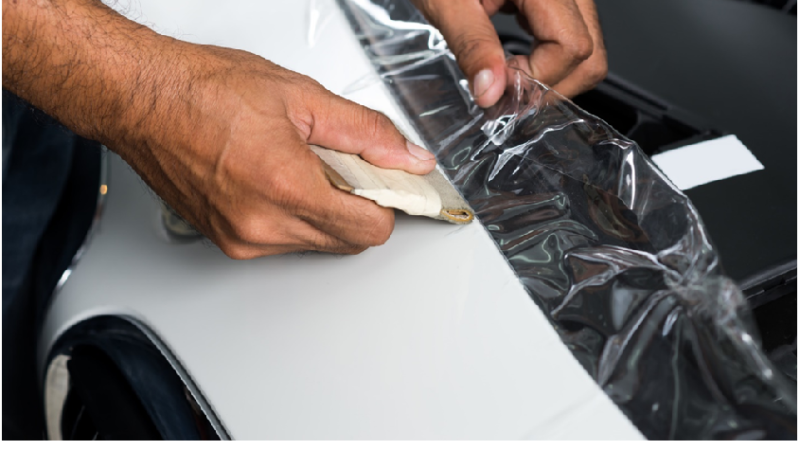Moving Cross-Country: How to Hack It Without Losing Your Mind

Around 13% of Americans move each year, with some taking a leap of faith and moving all the way across the country.
Cross-country moves are notoriously stressful, and long-distance moving plans usually involve at least a few hiccups. But that doesn’t mean you should stay put and avoid relocating to the state or city of your dreams.
If you’re moving cross-country, use this quick guide to help you hack it without losing your mind.
Research Jobs and Schools
Before planning your move, it’s a must to research jobs and schools in the area you’d like to live in. That means knowing what jobs are available, how easy it is to find a job, and the local unemployment rates.
If you’re a student, or if you’re a parent to one, you should also look into local schools and their reputations. It’s important to have options when it comes to education, including everything from high-quality daycares to reputable universities.
Create a Budget
Moving across the country can be expensive, which is why you should have a budget squared away in advance.
Common costs of moving include:
- moving truck rental
- moving supplies
- hiring professional movers
- putting down a deposit on your new home
- buying new furniture and appliances
- house cleaning
- utility deposits
- flight tickets
- hotel stays
- new home setup, such as buying groceries and toiletries
All these costs can add up. And if you’re moving across the country, you’ll likely need at least a week or two away from work, which may further hurt your bank account.
Before moving, you’ll need to have money saved to help keep your finances in check during your relocation. Calculate any expenses associated with your move and set a budget as early as possible.
Declutter
Moving across country often requires getting rid of some unnecessary items, unless you’re prepared to spend more for additional shipping containers.
To keep your move as lean as possible, be sure to declutter your home and weed out the non-essentials. Donate, sell, or throw away things that will only take up space and can be easily replaced if needed.
Also consider what type of home and climate you’ll be moving to. For example, if you have a range of summer outdoor items but you’re moving to a cold city, it’s probably not worth it to hold onto these items.
Decide How You’ll Travel
When planning how to move cross-country, deciding how to move is one of the most difficult aspects.
Will you drive a moving truck yourself? Or is hopping on a plane an easier option? In either case, you’ll need to use a car shipping company if you’re planning to bring your car with you.
Alternatively, you may decide to drive your car yourself to your destination. This can be a practical option for those who aren’t moving many large items, or for those who plan to use a separate shipping container for furniture and other goods.
There are several key points to consider when choosing how you’ll travel to your new home.
For example, if you’ll drive a car or moving truck yourself, you should be prepared to reserve several days (and even up to one or two weeks) for your move. And know that driving for several days can be exhausting and isn’t recommended if you don’t have another person to share the driver’s seat with.
If you decide to drive a moving truck, also note that it may be dangerous if you’ve never driven a large vehicle before.
Flying to your destination may be a smart decision if you plan to have professional movers drive the moving truck for you or if you ship your items via a shipping container. But in these instances, be sure to document the condition of your valuable items, and check that the company you’re using has a transparent insurance and refund policy.
Also note that your car and other personal items will typically arrive after you do. And you’ll need to organize a taxi and possibly a hotel for when you first arrive in your new city.
Set Up Utilities in Advance
You may get all the way to your new home without a hitch, only to realize you have no running water, electricity, or other essential utilities. And now, as more people are working from home, even wifi can be considered a necessity.
That’s why you must set up your utilities in advance. Otherwise, you may find yourself having to stay in a hotel for several days, which will only add to your moving costs.
Utilities and utility companies differ depending on the city you’ll move to. Research your options for each of the following:
- electricity
- gas
- water
- sewage services
- internet
- cable
- phone
- trash collection and recycling
Call any companies, and arrange to have utilities turned on before your arrival when possible. If you must be present to receive service, it’s often best to schedule appointments sooner rather than later.
Ask for Help
A cross-country move is challenging and life-changing for most people, and you may run into many stressful moments along the way. But you don’t have to handle everything alone.
Ask for help from family and friends who are happy to support you in your journey. They can help you pack up belongings or help you with any necessary appointments (such as with movers or landlords).
And you may even already have some connections in your new home. If you know an old friend or distant relative in your destination, reach out and ask for their advice and recommendations in the area.
Essential Tips When Moving Cross-Country
Moving cross-country is a difficult but worthwhile experience for most. But before you can settle into your new home, you’ll need to get prepared.
From researching career options to setting up utilities, use these tips to help you get ready for your big move. That way, you can avoid some unnecessary stress along the way.
If you’re looking for ways to make your new house or apartment feel like home-sweet-home, check out our home improvement articles for inspiration!





